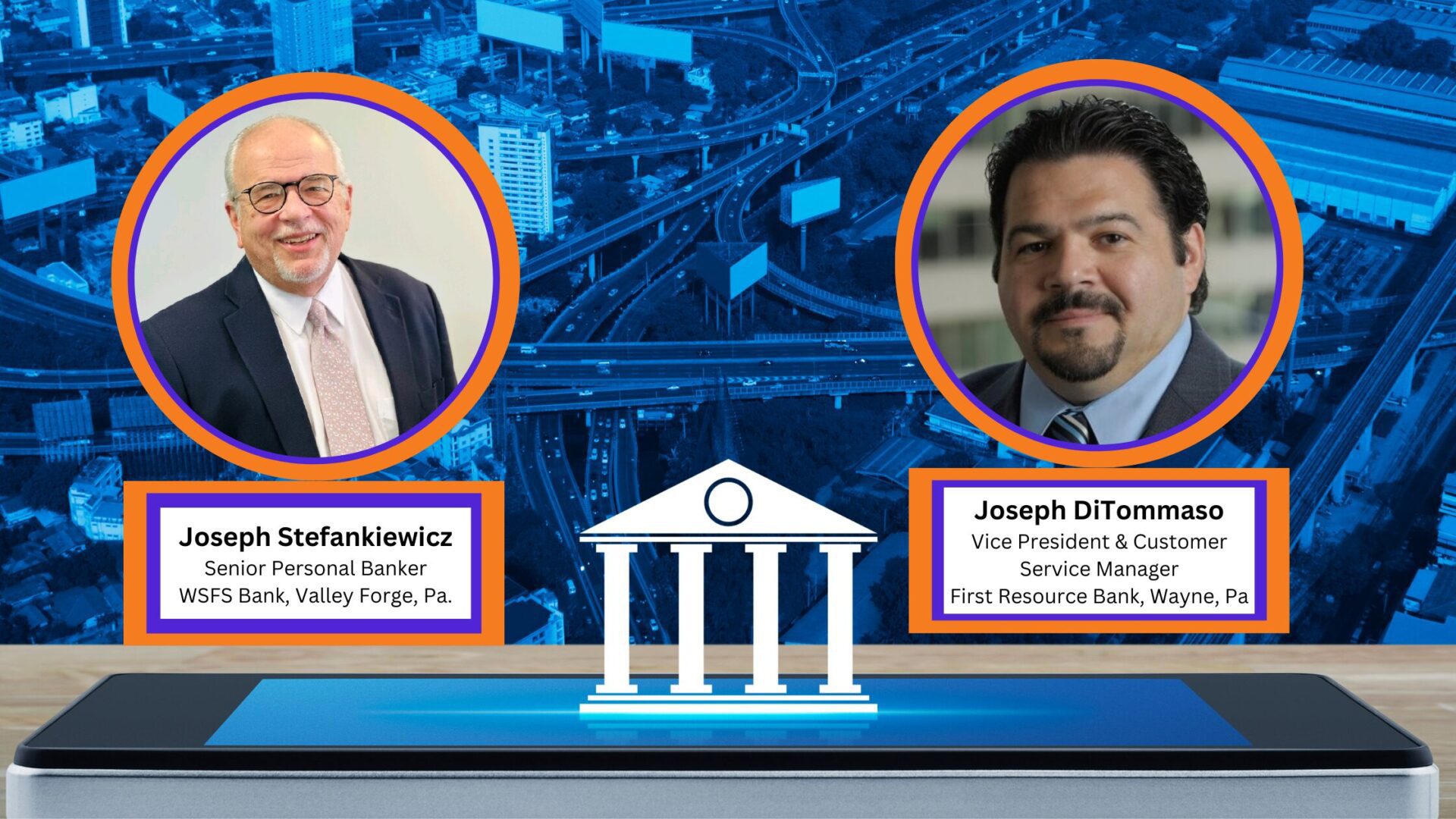Maine attorney Chris Van Dyck is a study in contrasts. A sharp, dedicated attorney specializing in financial institutions and cannabis law, he projects an unexpected, admirable humility. His demeanor is one of quiet strength. Of reserved ego. Of warm friendliness. Of deep intelligence. Of natural compassion.
These assets—that seemingly fly in the face of common stereotypes surrounding counselors—have been shaped by Van Dyck’s grounded upbringing, dogged determination, and a personal ethic that values selflessness over braggadocio. He is smart and informed. But his expertise exists under a calm candor that brings to mind a character observation from Scottish novelist Robert Louis Stevenson: “Quiet minds cannot be perplexed or frightened but go on in fortune or misfortune at their own private pace, like a clock during a thunderstorm.”
Road Trips and Saltwater Excursions
Born and raised in Buffalo, N.Y., Van Dyck spent his childhood summers traveling through Maine, en route to his family’s cottage in Nova Scotia. His parents had purchased a vintage house there when land values were very affordable. “You could buy 78 acres for a song,” Van Dyck notes. “Those trips left a deep impression on me,” he continues. “We’d stop in Bar Harbor and take the ferry across the Bay of Fundy. Those early memories played a big part in my decision to settle here later in life.”
Childhood Road Trips: A Foundation for Future Journeys
The car rides to and from this outdoor wonderland were a key component of the family vacations.
“One of my distinct memories—I was seven years old when we took that first trip—was getting there in our old station wagon,” he relates. “My parents didn’t have much money. So, in the name of economy, they would skip booking a hotel night for the two-day trek.
He continues: “We would drive all the way to the Bar Harbor ferry parking lot and sleep there, in the station wagon. All six of us; Mom and Dad, my two sisters (ages 13 and 10), my twin brother, and me (both seven years old). We slept toe-to-head across the front and back seats.
“I can remember being firmly told we had to go to sleep, that we had a big day ahead. But I seemed to always have a very hard time getting to sleep. My twin brother and I were full of antics in the very back of the station wagon. Our giggling and teasing kept everyone else awake through the night.
“Even when we settled down, the sleeping arrangements weren’t ideal. I remember more than once waking up in the morning with one of my sibling’s feet in my face.
“And the chilly nights didn’t help either. At sun-up, we’d be awake and cold and damp and grumpy. My parents were understandably more grumpy than we kids were,” he laughs.
First Encounters with the Sea: The Bay of Fundy Ferry
Despite any ill effects of the disrupted slumber, the clan moved onward, this time, taking to the water. They drove the station wagon onto a ferry that would carry them across the Bay of Fundy and onto Nova Scotia.
That first sailing on the bay held another sweet Van Dyck memory. “My father took my twin brother and me to the lowest level of the ferry, which accommodated any trucks making the crossing,” Van Dyck relates. “He took us up to the bow and lifted us up so we could poke our heads out the porthole. The view was incredible. We’d have the sea spray in our faces and the wild sea very close below us. It was very thrilling.”
Into the Water Again: Competitive Swimming
When the Van Dyck twins reached high school, their affinity for the water kicked in in a different setting. The pair tried out for (and made) the swimming team, despite having no competitive experience.
“We were terrible at first. “We were so bad that we were relegated to backstroke because we couldn’t figure out the breathing or technique for the other strokes,” Van Dyck laughs. He eventually learned how to flip over and propel himself through the water face-down; his brother, however, continued dorsally, becoming a first-rate backstroker in his own right.
Over time, through persistence and hard work, Van Dyck became team captain, which supplied him with leadership skills whose benefits paid off later, during his professional years.
Reflecting on the sport’s long-term influence, he asserts: “Swimming taught me the importance of showing up and doing the work, even when it’s hard or uncomfortable.” The competition in the pool contained lessons he applies daily in his banking and cannabis banking practice, where expertise often results from a sustained can-do attitude and a steeled will.
Sandwiching in the School Work
Van Dyck’s legal career began in Canada, where he earned his law degree and practiced for five years as a commercial litigator in Toronto. The long hours and relentless billing demands of a large firm, however, got him to reevaluate his priorities. “It became a soul-deadening experience,” he explains.
“It was a full-service law firm, and I was in the commercial litigation area. Most of what I did was legal research and preparing briefs and, to be honest, we weren’t always wearing the white hat, either, with the clients we represented.
“It was all about the hours, the work, the billable targets. Nothing else mattered. There was no real sense of connection, either. So, no social life personally or with co-workers. No one really asked how I was doing, how my family was, nothing like that.
“When you’re sitting in front of your computer, working as the sun’s coming up and setting again—well, it’s like this timelapse, you know? You’re just there, going around in circles, day after day. It was a blur. And it wasn’t just Monday through Friday. The weekends? Same thing. For the most part, no breaks,” he characterizes.
“I promised myself I wouldn’t return to that environment.”
In response, therefore, Van Dyck eventually retreated back to Maine, where he and his wife, Donna, have lived for more than 25 years.
Requalifying to practice law in Maine required tremendous discipline, especially considering his growing family and his age at the time (46). “I was self-studying with a friend’s 10-year-old Bar Review books while working full-time and raising two young boys,” he recalls. “I’d work during the day, and come home, where my wife packed me a peanut butter and jelly sandwich—always strawberry jam, never grape—and trudge off to study late into the night at the Curtis Memorial Library, Brunswick, Maine.
Fortunately for Van Dyck, the setting was atypical for a budding attorney prepping for the Bar. Rather than solitary cubicles filled with focused students fueling themselves with coffee and carbs, the Curtis Library provided a different vibe. “It was a very nice library,” he remembers. “There was a periodicals room that was very nice, especially in the winter when I was studying. It had a roaring fireplace, which was a nice place to cozy up close to.
“And the librarians got to know me pretty well.
“I was grateful to have such a nice place to study. And it was close by, too.”
The nightly deep dives into the books paid off; Van Dyck passed the Maine bar and merged into the next phase of his career.
Client-First and Compliance-Focused Approach to Financial Institution Law
Van Dyck’s legal philosophy reflects his personal values: practicality, empathy, and teamwork. After passing the Maine bar, he spent six years as the attorney for the Bureau of Financial Institutions and later served as General Counsel for a financial institution of roughly $400 million in assets in southern Maine.
These roles gave him firsthand insight into the inner workings of banks and credit unions, especially from a regulatory standpoint. “Understanding regulatory expectations and operational realities is critical when advising financial institutions,” he says.
Van Dyck deepens that point, explaining: “Having a regulatory lens is really important. Financial institutions are the most highly regulated industry in the world.
“And it’s not just one regulator, it’s several regulators that you have to deal with. So it’s really important to be able to communicate effectively with those regulators and know ‘regulator speak,’ know what their concerns are from a regulatory perspective and to address those in an effective way.”
He offers a salient observation he’s gained from his interactions with financial oversight representatives: “Don’t treat them adversarially. That’s the biggest mistake one can make.
“They are there to ensure that your financial institution remains safe and sound. They’re there for a reason. And having a financial institution charter, that is a privilege. And I think it’s a privilege that some folks take for granted.
“Again, it’s about teamwork, working effectively with the regulator to make sure you’re all doing this for the same reason, to ensure that your bank or credit union stays within the rails. That’s an important thing,” he concludes.

Specialized Legal Counsel: Elder Fraud and Cannabis Banking
Protecting the Vulnerable: Combating Elder Financial Abuse
Today, as an attorney with Cogent Law Group, Van Dyck emphasizes a client-first approach, unencumbered by the burdensome rigid billing quotas of his past. “Here, the focus is on what’s best for the client,” he explains. “That flexibility allows us to offer services at a fraction of the cost charged by major Washington, D.C., firms.”
Van Dyck’s work has often addressed the most challenging issues facing financial institutions. One area of focus has been combating elder financial exploitation, a growing concern in Maine, which has the oldest population in the U.S. As a Bank Secrecy Act (BSA) officer, he developed systems to identify and prevent financial abuse, often collaborating with Adult Protective Services to shield vulnerable customers. “It’s heartbreaking to see people taken advantage of when they need protection the most,” he says.
Driving Economic Growth: Cannabis Banking Success
Another significant achievement was his leadership in developing a cannabis banking program at his former Maine financial institution. Despite the regulatory complexities, Van Dyck recognized the importance of providing banking services to cannabis-related businesses for both public safety and economic stability. “These businesses are part of the community, and they need to be banked,” he explains. “Without a banking relationship, many of these businesses wouldn’t survive.”
His approach to cannabis business banking reflects his regulatory background and pragmatic mindset. “It’s about getting your compliance ducks in a row and working collaboratively with regulators,” he notes. The program’s success was striking: cannabis-related deposits accounted for a quarter of the institution’s total return on assets during his tenure.
The Power of Kindness
Despite his demanding career, Van Dyck remains rooted in the values of kindness and community. His late mother, who suffered from dementia, lived in assisted care near his home in Brunswick, Maine, a period that deeply influenced him. “Her caregivers were incredible, and their dedication inspired me to always appreciate the expertise and efforts of others. That experience helped me to deeply understand the power of kindness and empathy,” he shares.
Not surprisingly, her loss changed him.
“When she passed,” he admits, “what really moved me very much was the sheer number of people who reached out – people I didn’t know very well or even at all. Nevertheless, they made the time and effort to send their condolences to me. That touched me very, very much.
“It’s the small kindnesses that really go a long way.
“It made me realize that kindness is one of those virtues that is sometimes forgotten in business and management.
“You drive along the road and you see these signs, ‘Be Kind.’ It’s sad in a way that there have to be those signs out there. But kindness should always be given. I always keep my clients’ and their clients’ individual situations in mind, as there is often a very human outcome behind the recommendations I make to financial institutions.”
Building Trust Through Action
Van Dyck believes trust is the cornerstone of his work, whether with clients, regulators, or colleagues. He identifies it as crucial to build, vital to maintain, and worthy of long-term protection.
“Financial institutions live or die on trust,” he says. “It’s about clear communication, empathy, and delivering on your commitments.” He cites a favorite quote that has informed his professional outlook. It’s from the 1993 book First Things First, for which Stephen R. Covey was one of three authors: “Trust is the glue of life. It’s the most essential ingredient in effective communication. It’s the foundational principle that holds all relationships.”
Beyond Compliance: How Humility and Compassion Drive Success in Financial Institutions
The qualities of humility, knowledge, determination, compassion, and empathy are invaluable. They bolster effective partnerships between disparate entities that include legal advisors and bank compliance officers, C-suite banking decision-makers, seasoned analysts and their junior counterparts, even front-facing tellers and the everyday customers who fill their transaction queues.
This kind of symbiotic connection is especially valuable in a legal partner who approaches issues with a deep, first-hand understanding of regulations, a commitment to practical solutions, and a focus on collaboration. These personal assets help institutions not only meet their regulatory obligations but also build trust with stakeholders.
Van Dyck’s ongoing professionalism and unique ethical outlook, outlined here, is not only useful to junior counselors just starting their careers in the financial services industry. It’s a worthy set of ethics that banks can use when seeking legal representation for their own operations.



















